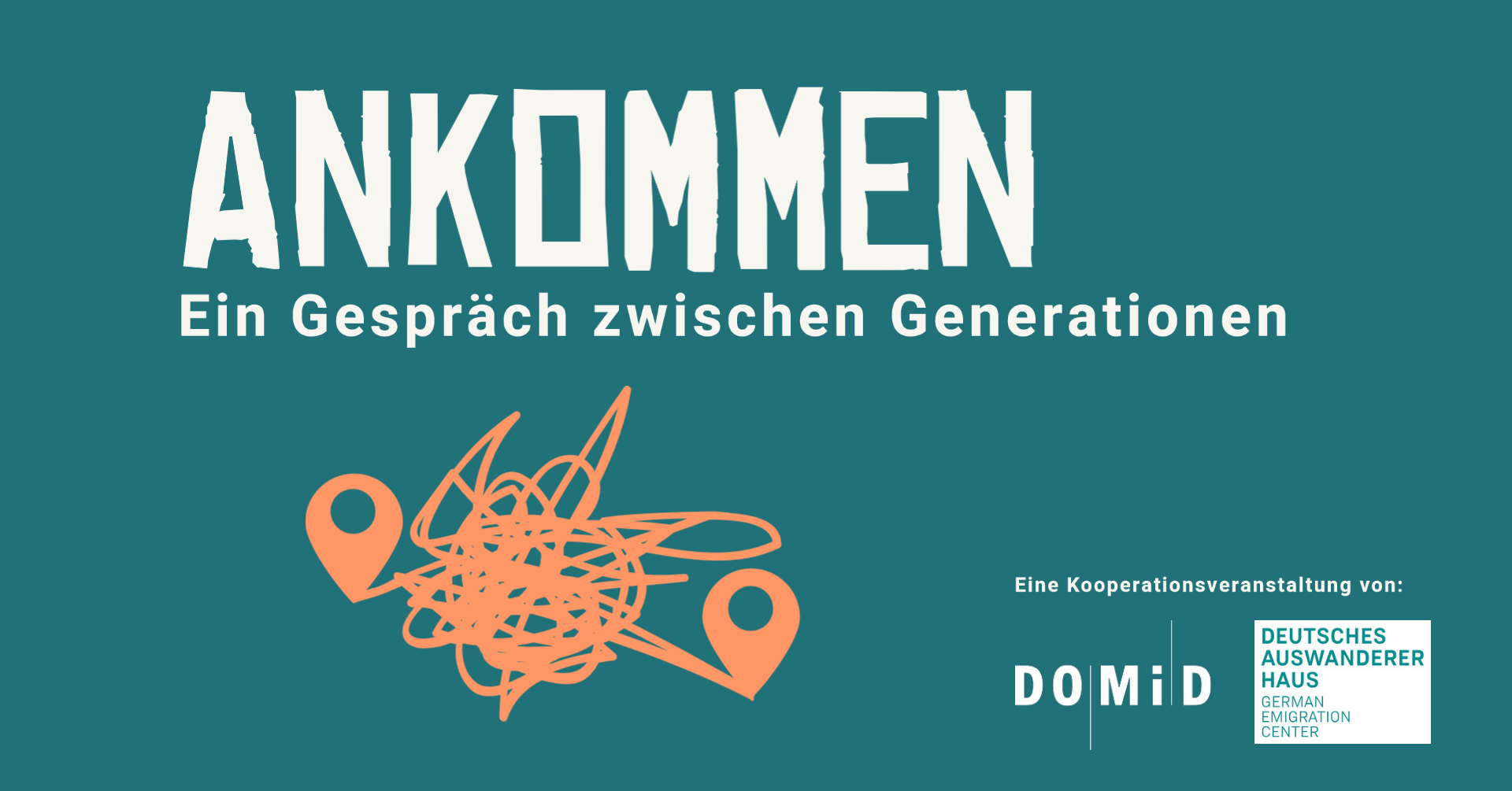Contemporary witnesses report, young people ask questions
26 October 2021
Contemporary witnesses report, young people ask questions
- Intergenerational Conversation: "Arriving. A conversation between generations"
- Online conversation on Friday, 29.10.2021, 11.30h available in the stream
- Cooperation between the migration museums DOMiD from Cologne and Deutsches Auswanderhaus Bremerhaven
Cologne/Bremerhaven, 26.10.2021 - The idea of the event is simple, the scope large: Young people in Bremerhaven ask contemporary witnesses in Cologne about their migration history. The witnesses or their parents came to Germany as "guest workers. The migration museums DOMiD and Deutsches Auswandererhaus Bremerhaven have taken the 60th anniversary of the German-Turkish recruitment agreement as an opportunity to invite people to this intergenerational discussion. The aim is to strengthen social cohesion by conveying the history of migration.
Again and again, people from other countries arrive in Germany. Others seek their fortune far away, emigrate. And they have been doing so for centuries. Germany is a country of immigration, a migration society, a post-migrant society. The children of immigrants are born here and yet are still confronted with the question: "Where do you (actually) come from?" However, being made a stranger and questions of belonging often differ between generations. At the same time, there are moments of arrival that are universal: a new school, a new job . How do we feel when we are newly "added" and what does that do to "us"? How can arrivals succeed?
Conversation between the generations
DOMiD and the German Emigration House facilitate the conversation between generations and thus contribute to an inclusive culture of remembrance. Young people in Bremerhaven will deal with the topic in a vacation workshop and ask contemporary witnesses in Cologne about their experiences of arriving, staying and their questions about identity in the concluding discussion on Friday. The young people will in turn report on their experiences with labels such as "migration background". This is the beginning of a search for what it takes for participation and social cohesion to succeed.
Contemporary witnesses:
Mitat Özdemir came to Cologne in 1966 as a Ford worker and later worked as a social worker and engineer. From 1983, he established himself as a businessman on Cologne's Keupstraße and chaired IG Keupstraße for many years. For many years, he has been committed to clarifying the NSU complex and to an open society.
Rosa Spitaleri came to Cologne from Sicily at the end of the 1960s as an eight-year-old. Her parents had gone ahead in 1964, leaving Rosa and her brother Vincenzo behind with relatives. Eventually, they planned to stay in Germany for only a few years, earn money, and then return to Sicily. But they stayed, and Rosa and Vincenzo completed their studies in Germany. Today she works as a social worker for Caritas, enjoys reading and writing poetry.
Kutlu Yurtseven has been a rapper with the Cologne group Microphone Mafia since the 1990s, a teacher, a social worker, a contributor to the Keupstraßen trilogy at Schauspiel Köln. He is also a memory worker: he completed hundreds of concerts with Auschwitz survivor and singer Esther Bejerano (died in 2021). Kutlu is involved in the tribunal "NSU-Komplex auflösen" and in the initiative Herkesin Meydanı - Platz für Alle, which is campaigning for an anti-racist memorial on Keupstraße in Cologne to commemorate the NSU attack.
Moderation: Elif Şenel (journalist).
A cooperation event of DOMiD and Deutsches Auswandererhaus on the occasion of the 60th anniversary of the German-Turkish recruitment agreement.
Friday, 29.10.2021
11.30 a.m. - 12.30 p.m.
The hybrid/online event can be followed live in stream at:https://zoom.us/j/97275232731
Registration is not required. The event will be recorded; by participating in the stream, you agree to the recording, storage and possible publication.
-

Event-image
1920x1005 px / JPG